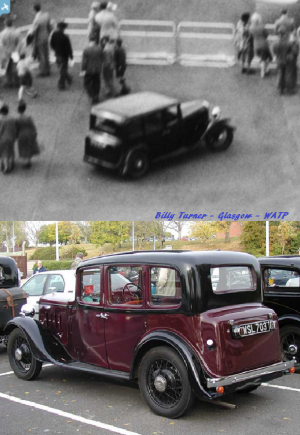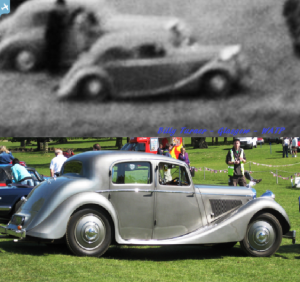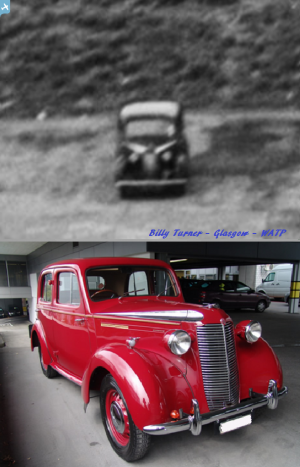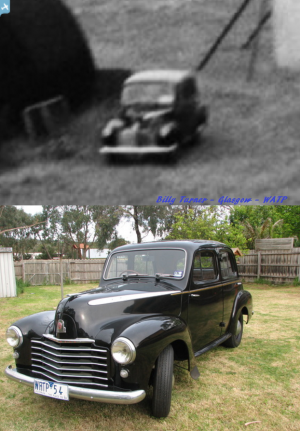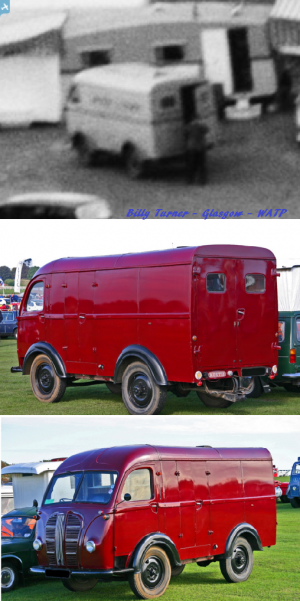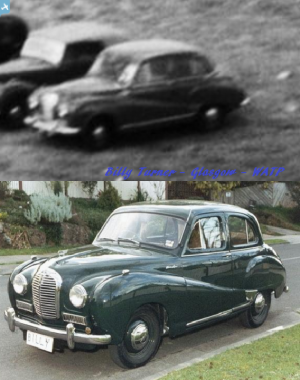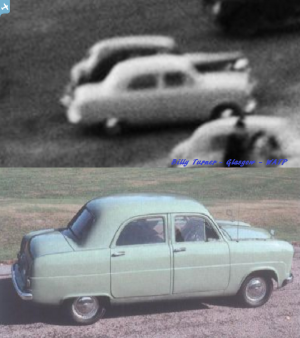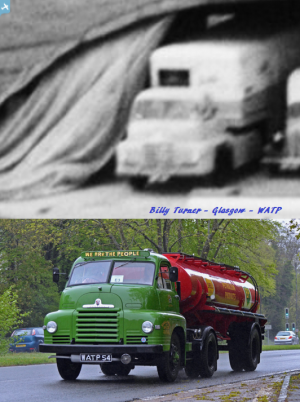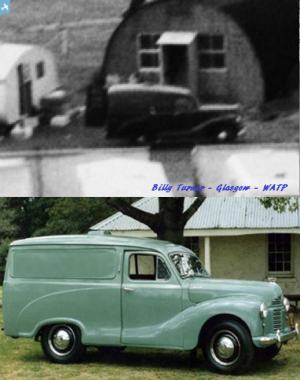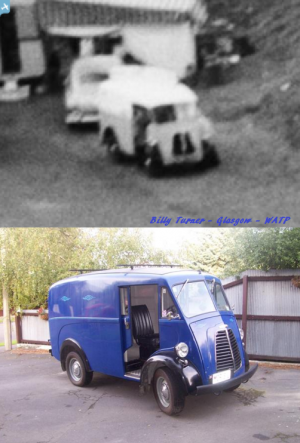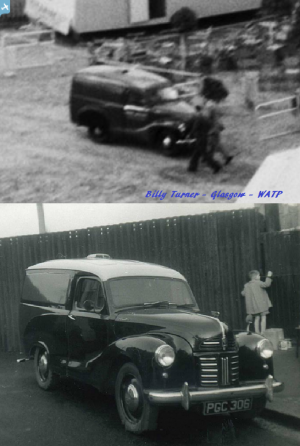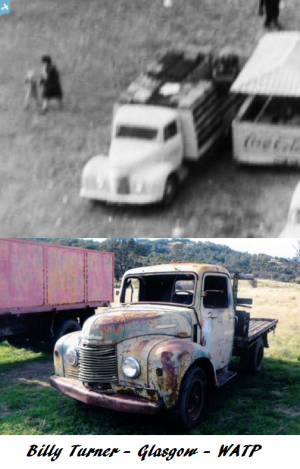EAW046639 ENGLAND (1952). Farnborough, various aircraft on display in the Static Park for the Farnborough Air Show, 1952
© Hawlfraint cyfranwyr OpenStreetMap a thrwyddedwyd gan yr OpenStreetMap Foundation. 2025. Trwyddedir y gartograffeg fel CC BY-SA.
Delweddau cyfagos (23)
Manylion
| Pennawd | [EAW046639] Farnborough, various aircraft on display in the Static Park for the Farnborough Air Show, 1952 |
| Cyfeirnod | EAW046639 |
| Dyddiad | 5-September-1952 |
| Dolen | |
| Enw lle | FARNBOROUGH |
| Plwyf | |
| Ardal | |
| Gwlad | ENGLAND |
| Dwyreiniad / Gogleddiad | 486178, 153909 |
| Hydred / Lledred | -0.76434306277522, 51.277291261574 |
| Cyfeirnod Grid Cenedlaethol | SU862539 |
Pinnau
 Andy A |
Tuesday 22nd of November 2016 10:21:42 PM | |
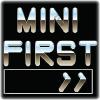 Billy Turner |
Sunday 24th of July 2016 07:52:31 PM | |
 Billy Turner |
Wednesday 27th of April 2016 08:34:00 PM | |
 Billy Turner |
Wednesday 27th of April 2016 08:18:26 PM | |
 Billy Turner |
Wednesday 27th of April 2016 07:58:41 PM | |
 Billy Turner |
Wednesday 27th of April 2016 07:26:13 PM | |
 Billy Turner |
Wednesday 27th of April 2016 06:51:26 PM | |
 Billy Turner |
Wednesday 27th of April 2016 05:19:29 PM | |
 Billy Turner |
Wednesday 27th of April 2016 04:57:47 PM | |
 Billy Turner |
Wednesday 27th of April 2016 04:37:41 PM | |
 Billy Turner |
Wednesday 27th of April 2016 02:34:18 PM | |
 Billy Turner |
Wednesday 27th of April 2016 02:11:10 PM | |
 Billy Turner |
Tuesday 26th of April 2016 07:27:11 PM | |
 Billy Turner |
Tuesday 26th of April 2016 06:27:51 PM | |
 Billy Turner |
Tuesday 26th of April 2016 05:47:49 PM | |
 Billy Turner |
Tuesday 26th of April 2016 05:35:37 PM | |
 Billy Turner |
Tuesday 12th of April 2016 07:28:42 PM | |
 Billy Turner |
Tuesday 12th of April 2016 06:35:59 PM | |
 Billy Turner |
Tuesday 12th of April 2016 05:40:01 PM | |
 LCWyche |
Saturday 19th of July 2014 02:11:10 PM | |
First aircraft to be able to taxi backwards, a great asset on a jungle airstrip. |
 John Wass |
Saturday 8th of November 2014 03:15:15 PM |
Cyfraniadau Grŵp
The following aircraft were exhibited at the 1952 Society of British Aircraft Contructors (SBAC) airshow at Farnborough: CF-CUM de Havilland Comet 1A G-AIVX Short Sealand G-AJLW de Havilland Dove 2 G-AKBF Scottish Aviation Pioneer 2 G-ALBN Bristol 173 MK1 G-ALBO Bristol Britannia 100 G-ALSX Bristol 171 MK3 G-ALVG de Havilland Comet 1 G-ALWE Vickers Viscount 701 G-ALZL de Havilland Heron 1 G-AMKL Auster B4 G-AMKY Percival Prince 3B G-AMMB Percival Prince 2 G-AMMS Auster Aiglet Trainer J/5L G-AMPA Auster Autocrat J/5G G-AMTZ Saunders-Roe Skeeter 5 VV612 de Havilland Venom 1 VX136 Supermarine 508 VX158 Short Sperrin VX185 English Electric Canberra B5 VX770 Avro 698 Vulcan prototype VX790 Avro 707B VZ750 Westland Wyvern TF4 WB195 Hawker Hunter F1 WB215 Vickers Valiant B1 WD280 Avro 707A WD808 Gloster Javelin FAW1 WD933 English Electric Canberra B2 (Sapphire engines) WD943 English Electric Canberra B2 (Avon engines) WD952 English Electric Canberra B2 (Olympus engines) WE281 de Havilland Venom FB1 WE488 Fairey Ganett AS1 WE522 Percival Provest T1 WF112 Saunders-Roe Skeeter 3B WF147 Hawker Sea Hawk F1 WF320 Blackburn Univeral Freighter WF429 Vickers Varsity T1 WG236 de Havilland DH110 (crashed 6th September) WG240 de Havilland DH110 WG531 Avro Shackleton MR2 WG707 Westland Dragonfly HR3 WJ149 Fairey Firefly AS7 WJ965 Supermarine 541 WK194 Supermarine Swift F1 WK338 Supermarine Attacker FB2 WK385 de Havilland Sea Venom NF20 WL453 Gloster Meteor T7 WL808 de Havilland Venon NF2 WM166 Armstrong Whitworth Meteor NF11 WM735 Percival Sea Prince T1 WN467 English Electric Canberra T4 WP838 de Havilland Chipmunk T10 WZ429 de Havilland Vampire T11 XA250 Handley Page Reading Marathon T1 NZ5906 Bristol Freighter 31 Other aircraft on the airfield were resident or supporting the exhibitors. |
 Graham Yaxley |
Friday 16th of January 2015 07:42:14 PM |

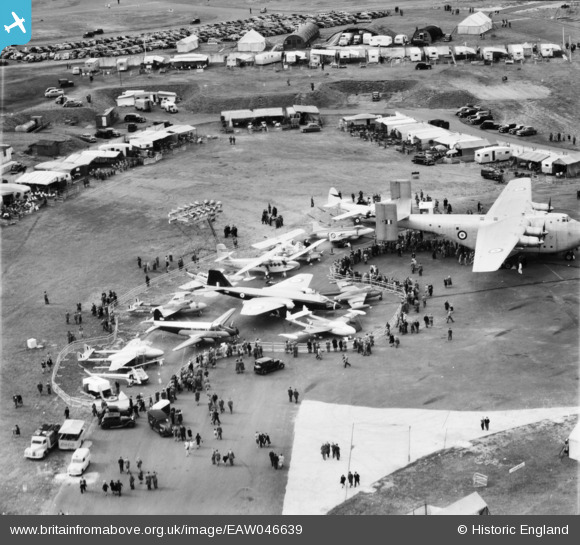
![[EAW046639] Farnborough, various aircraft on display in the Static Park for the Farnborough Air Show, 1952](http://britainfromabove.org.uk/sites/all/libraries/aerofilms-images/public/100x100/EAW/046/EAW046639.jpg)
![[EAW046627] Farnborough, various aircraft on display in the Static Park for the Farnborough Air Show, 1952](http://britainfromabove.org.uk/sites/all/libraries/aerofilms-images/public/100x100/EAW/046/EAW046627.jpg)
![[EAW051950] Farnborough, various aircraft on display in the static park at Farnborough Air Show including the Bristol Freighter G-AINL and English Electric Canberra PR3 WE146, 1953. This image was marked by Aerofilms Ltd for photo editing.](http://britainfromabove.org.uk/sites/all/libraries/aerofilms-images/public/100x100/EAW/051/EAW051950.jpg)
![[EAW052984] Farnborough, various aircraft on display at the Farnborough Air Show, 1953](http://britainfromabove.org.uk/sites/all/libraries/aerofilms-images/public/100x100/EAW/052/EAW052984.jpg)
![[EAW051962] Farnborough, various aircraft on display in the static park at Farnborough Air Show including the Bristol Freighter G-AINL, 1953. This image was marked by Aerofilms Ltd for photo editing.](http://britainfromabove.org.uk/sites/all/libraries/aerofilms-images/public/100x100/EAW/051/EAW051962.jpg)
![[EAW051953] Farnborough, various aircraft on display in the static park at Farnborough Air Show including the Bristol Freighter G-AINL and English Electric Canberra PR3 WE146, 1953. This image was marked by Aerofilms Ltd for photo editing.](http://britainfromabove.org.uk/sites/all/libraries/aerofilms-images/public/100x100/EAW/051/EAW051953.jpg)
![[EAW046642] Farnborough, various aircraft on display in the Static Park for the Farnborough Air Show, 1952](http://britainfromabove.org.uk/sites/all/libraries/aerofilms-images/public/100x100/EAW/046/EAW046642.jpg)
![[EAW046636] Farnborough, various aircraft on display in the Static Park for the Farnborough Air Show, 1952](http://britainfromabove.org.uk/sites/all/libraries/aerofilms-images/public/100x100/EAW/046/EAW046636.jpg)
![[EAW052990] Farnborough, various aircraft on display at the Farnborough Air Show, 1953](http://britainfromabove.org.uk/sites/all/libraries/aerofilms-images/public/100x100/EAW/052/EAW052990.jpg)
![[EAW051952] Farnborough, various aircraft on display in the static park at Farnborough Air Show including the Bristol Freighter G-AINL and de Havilland Heron 1 PK-GHB, 1953. This image was marked by Aerofilms Ltd for photo editing.](http://britainfromabove.org.uk/sites/all/libraries/aerofilms-images/public/100x100/EAW/051/EAW051952.jpg)
![[EAW046641] Farnborough, various aircraft on display in the Static Park for the Farnborough Air Show, 1952](http://britainfromabove.org.uk/sites/all/libraries/aerofilms-images/public/100x100/EAW/046/EAW046641.jpg)
![[EAW046633] Farnborough, various aircraft on display in the Static Park for the Farnborough Air Show, 1952](http://britainfromabove.org.uk/sites/all/libraries/aerofilms-images/public/100x100/EAW/046/EAW046633.jpg)
![[EAW046643] Farnborough, various aircraft on display in the Static Park for the Farnborough Air Show, 1952](http://britainfromabove.org.uk/sites/all/libraries/aerofilms-images/public/100x100/EAW/046/EAW046643.jpg)
![[EAW052988] Farnborough, Blackburn Universal Freighter 2 Beverley Prototype WZ889 and other aircraft on display at the Farnborough Air Show, 1953](http://britainfromabove.org.uk/sites/all/libraries/aerofilms-images/public/100x100/EAW/052/EAW052988.jpg)
![[EAW051956] Farnborough, Blackburn Universal Freighter 2 Beverley Prototype WZ889 on display at the Farnborough Air Show, 1953. This image was marked by Aerofilms Ltd for photo editing.](http://britainfromabove.org.uk/sites/all/libraries/aerofilms-images/public/100x100/EAW/051/EAW051956.jpg)
![[EAW051997] Farnborough, various arircraft on display at the Farnborough Air Show, 1953](http://britainfromabove.org.uk/sites/all/libraries/aerofilms-images/public/100x100/EAW/051/EAW051997.jpg)
![[EAW051957] Farnborough, Avro Shackleton MR 2 WL796 and English Electric Canberra B2 WD930, WD952 and WJ716 on display at the Farnborough Air Show, 1953. This image was marked by Aerofilms Ltd for photo editing.](http://britainfromabove.org.uk/sites/all/libraries/aerofilms-images/public/100x100/EAW/051/EAW051957.jpg)
![[EAW051961] Farnborough, various aircraft on display at the Farnborough Air Show, 1953. This image was marked by Aerofilms Ltd for photo editing.](http://britainfromabove.org.uk/sites/all/libraries/aerofilms-images/public/100x100/EAW/051/EAW051961.jpg)
![[EAW051964] Farnborough, various aircraft on display at the Farnborough Air Show, 1953. This image was marked by Aerofilms Ltd for photo editing.](http://britainfromabove.org.uk/sites/all/libraries/aerofilms-images/public/100x100/EAW/051/EAW051964.jpg)
![[EAW051959] Farnborough, various aircraft on display at the Farnborough Air Show including the Bristol Britannia 100 G-ALBO, 1953. This image was marked by Aerofilms Ltd for photo editing.](http://britainfromabove.org.uk/sites/all/libraries/aerofilms-images/public/100x100/EAW/051/EAW051959.jpg)
![[EAW052985] Farnborough, various aircraft on display at the Farnborough Air Show, 1953](http://britainfromabove.org.uk/sites/all/libraries/aerofilms-images/public/100x100/EAW/052/EAW052985.jpg)
![[EAW046628] Farnborough, Bristol Freighter NZ5906 parked at the 1952 Farnborough Air Show, 1952](http://britainfromabove.org.uk/sites/all/libraries/aerofilms-images/public/100x100/EAW/046/EAW046628.jpg)
![[EAW052992] Farnborough, various aircraft on display at the Farnborough Air Show, 1953](http://britainfromabove.org.uk/sites/all/libraries/aerofilms-images/public/100x100/EAW/052/EAW052992.jpg)

